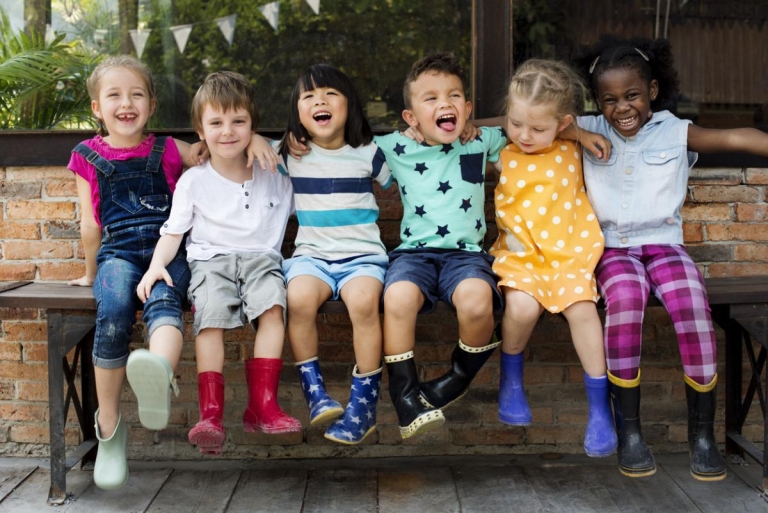blog post
4 tips for teaching your child the art of happiness
discover the benefits of happiness and simple ways to boost it

You probably know a few people who have a positive attitude and seem happy no matter what’s going on. However, life is full of challenges and it is impossible to be happy all the time!
Even though how we feel often depends on our circumstances, there are practices we can do to grow our happiness.
Happiness has many benefits, including:
- Strengthening the immune system
- Lowering blood pressure
- Improving sleep
- Improving educational outcomes
- Increasing how long you live
Here are four ways can practice the art of happiness with your children:
1. Social support. One of the most important components of resilience (the ability to bounce back from tough situations) is social support. In other words, having a supportive group of friends and families can help us get through the hardest moments. You can do this by:
- Helping your kids create positive friend groups and strong family connections.
- Encourage them to find time in their daily life to reach out, spend time with, and share their thoughts and feelings with people in their life.
- Want to add extra credit? Encourage them to do something nice for the people in their lives to increase their happiness and a feeling of purpose.
2. Fun activities. Doing daily activities that we find fun and fulfilling can increase our happiness, even if we do them for just a few minutes a day. They also can help distract us from our thoughts when we are going through hard times.
You can practice this by:
- Encouraging your child to find hobbies or activities that help them feel accomplished, joyful or relaxed.
- Explore creative activities such as arts and crafts, physical activities such as dancing or a sport, or relaxation exercises like mindfulness or yoga.
- Make fun activities a part of your daily family schedule to help your child create a positive habit.
3. Healthy routines. Our mood depends a lot on our physical health. You can work on creating healthy routines by:
- Focusing on creating family routines that prioritize enough sleep, body movement and healthy foods when possible.
- Remember that kids learn from watching you, so model these behaviors yourself and make all changes as a family.
4. Practice gratitude. Sometimes we may spend a lot of our time thinking about the hard moments and stressors that impact us. It's important to remember to also give ourselves time to think about the positive things in our lives.
You can focus on practicing gratitude by:
- Being thankful for what you have at any given moment.
- Spending just a few minutes a day with your children sharing what each of you is grateful for.
- Exploring our gratitude activities for families including our Gratitude Jar Craft (also available to download in Spanish) or our Gratitude Chart.
more resources
If you're looking for access to even more resources to help you on your journey to supporting children's mental health, you'll want to become a part of the On Our Sleeves e-community! Our mission is to get our free, expert-created resources to as many caring adults in our communities so that everyone can understand and promote mental health for children.
Join us on this mission, by clicking the orange button below! You'll be signed up to start receiving monthly free content and resources to help you support the mental wellness of children in your life and break the stigma surrounding mental health. You'll also be the first to know about special giveaways like our Activity Book and Conversation Starter Cards.


